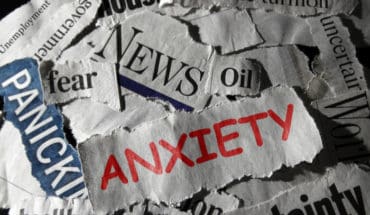The early signs of depression can be misinterpreted, with people mistaking them for other issues. When experiencing the symptoms, people often attribute them to stress, tiredness or over-exertion, not knowing that they are related to a more serious mental health condition.
As depression can worsen if left undiagnosed, it is so important to have a good understanding of the early warning signs. When you are able to recognise the symptoms, and receive a diagnosis and treatment early on, this is often associated with a better prognosis.
We have put together information on the early signs of depression to look out for. Our team has also written up practical self-care tips for people dealing with depression, and have outlined the support and treatment for mental health that is available here at Priory Group.
Recognising the early signs and symptoms of depression
Depression can affect our bodies and minds in so many different ways. Some of the earlier signs and symptoms of depression include the following:
- A sad or low mood – you experience a sadness that lasts for a long time and impacts on how you live your day-to-day life
- Starting to lose interest in activities – you lose interest in doing the things you once liked to do. This could include hobbies, sex or other interests and activities
- Withdrawing from family and friends – you avoid making contact with people that you are close to. You try to get out of social activities and any that you do attend, you don’t enjoy and want to leave
- Tiredness – you feel tired a lot of the time, which makes it difficult to complete everyday tasks and basic chores
- Changes in your sleep – your sleep pattern changes, where you either struggle to sleep or find that you sleep for longer
- Changes in your appetite – you don’t have the energy to cook as you once did, which means you forgo meals or reach for quick and often unhealthy meals and snacks
- Less concentration – you become less able to focus, which affects your work or academic performance. This may also be impacting on your memory
If you would like any further information, please visit our page on the signs and symptoms of depression.
Self-care tips for people showing the early signs of depression
For people who are feeling depressed, we understand that it can be difficult to take proactive, positive steps towards feeling better, as you probably feel low and tired. But remember, you deserve to enjoy life and there are things that you can do to improve how you feel.
Push yourself to start making changes. Some practical steps that can help with the early signs of depression include the following:
- Stick to a sleep routine – you may have been finding that you are sleeping more or less than usual, which is affecting how you think and feel the next day. Stick to a sleep routine, where you go to bed and get up at the same time every day. That way, your body will start to recognise the times it should be asleep and awake, which in turn will help you to sleep better and improve how you feel the following day
- Exercise outdoors daily – exercising releases our ‘feel-good’ brain chemicals, which can really help to boost our mood. Also, when you focus on exercising and moving your body, it can be a positive escape from any thoughts that have been causing you to feel down
- Eat healthy, regular meals – what you eat can have a huge impact on how you feel. It is better to eat regularly, as skipping meals can cause your mood to dip. Also, avoid consuming a lot of high-sugar foods, alcohol or caffeine as these can cause your mood to spike and then plummet. Instead, try to introduce foods that are rich in folic acid (such as avocado and spinach) and omega-3 acids (such as salmon and tuna), as these have been known to help ease symptoms of depression
- Keep connected – seeing the people you care about and taking part in group activities can help to boost your mood. It can also help to combat any feelings of loneliness and worthlessness that have been caused by your depression
Remember, depression is treatable
If you are experiencing the early signs of depression, it is always recommended that you seek support and treatment as soon as possible.
- Half way to Health: Dry January Motivation - 21st January 2025
- Priory’s Reaction to Government’s Social Care Workforce Update - 15th January 2024
- Responsible alcohol consumption during ‘Office Party Season’ - 10th December 2023







Thanks for sharing this, it’s a timely article, depression, along with anxiety is clearly on the rise. Spotting the onset of depression and treating it in the early stages is vital. Unsurprisingly, the deeper or the longer the person has experienced the depression, the more time it takes to treat. Depression is a self feeding monster because it stops people from wanting to do the things that fight depression like being active and engaging socially with others. Once we motivate people to start doing these things, recovery builds momentum quickly.